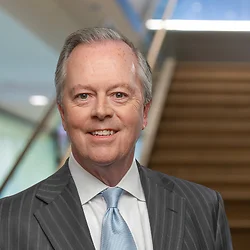7th Circ. Throws Out Challenge To Chicago's Obama Center
The city of Chicago's approval for former President Barack Obama's planned $500 million presidential center in a public park did not violate the U.S. Constitution, the Seventh Circuit has ruled following a challenge from an environmental group.
Largely siding with a district court, a three-judge panel said Friday the group and others who fought placement of the presidential center in the city's south side neighborhood did not have standing to allege violations of the takings clause of the Fifth Amendment or the due process clause of the 14th Amendment.
The challengers cannot show they have private property interest in the city-owned Jackson Park where the Obama Foundation plans on building a compound that will include a library, auditorium, gardens, athletic center and other features, the court said.
But the Seventh Circuit left the door open for Protect Our Parks Inc. and other appellants to revive the case, potentially in state court. It overturned the district court's ruling on state law claims, which the panel said the federal court system had no jurisdiction to consider.
Turning to the constitutional claims, the panel said the plaintiffs failed in their attempt to "twist" the public trust doctrine to forbid transfer of public property to a private entity while also conferring a private property right to members of the public.
"Neither of these claims can get off the ground unless the plaintiffs ... prove that they have private interest in Jackson Park," the panel wrote.
But the panel said the plaintiffs didn't prove any such thing and noted that previous cases, including the approval of the Museum of Science and Industry — located just north of the proposed Obama center location — brought about state rulings like Petersen v. Chicago Plan Commission of City of Chicago, a 1998 Illinois appellate court decision that rejected the idea of such private interest even for individuals with property adjacent to the site in the development of the land.
"If adjacent landowners have no protected interest in public land, then the plaintiffs don't have one either," the panel said. "Although the plaintiffs wish it were otherwise, the Illinois cases make clear that the public trust doctrine functions as a restraint on government action, not as an affirmative grant of property rights."
Kathy Fieweger, the director of public affairs with the City of Chicago Department of Law, told Law360 in an email on Monday that the city is "pleased the court ruled in our favor on the federal claims." She said that if the project opponents "persist in litigating the state claims that the district court found without merit, we will continue to defend our position."
Michael Rachlis of Rachlis Duff Adler & Peel LLC, an attorney for Protect our Parks, told Law360 on Monday that he and his clients are reviewing the Seventh Circuit's decision and evaluating next steps. He didn't rule out capitalizing on the Seventh Circuit's decision overturning the state law claims and said that there remain several ongoing federal reviews, including a National Environmental Policy Act and National Historic Preservation Act review, that might present future opportunities to challenge the project.
The Obama Presidential Center is the site of the 44th president's official presidential library and is billed as offering a range of perks for the south side neighborhood, from expanded economic opportunity in the area to biking and jogging paths in the park.
It was made possible in part by a January 2015 ordinance introduced by then-Chicago Mayor Rahm Emanuel — and former White House chief of staff to Obama — that allowed for the transfer of relevant land in the park to the city for use by the Obama Foundation to build and operate the center. The Chicago Plan Commission and Chicago City Council then reviewed the matter, held public hearings and then approved the intergovernmental land transfer.
Protect our Parks challenged the decision in May 2018 as "contrived collaboration" between the city and the Chicago Park District to build the center. It claimed the project would open up the door for potential future development on scarce park land and raised doubts about the actual public value of the center.
In June 2019, the district court rejected the claim that the presidential center would be an improper use of public park land.
The case was argued to the Seventh Circuit in May.
Protect Our Parks and the individual plaintiffs are represented by Richard Epstein, professor emeritus and senior lecturer at the University of Chicago Law School, and Michael Rachlis of Rachlis Duff Adler & Peel LLC.
The city of Chicago is represented by Benna Solomon and Elizabeth Tisher of the City of Chicago Law Department and Myriam Kasper of the city's corporation counsel office.
The city's park district is represented by Susan Horner, Elizabeth Pall and Joseph Roddy of Burke Warren Mackay & Serritella PC.
The case is Protect Our Parks Inc. et al. v. Chicago Park District et al., case numbers 19-2308 and 19-3333, in the U.S. Court of Appeals for the Seventh Circuit.
--Additional reporting by Lauraann Wood. Editing by Alyssa Miller.

Related Professional
- Partner
Related Practices & Industries
Sign-Up
Subscribe to receive firm announcements, news, alerts and event invitations.


